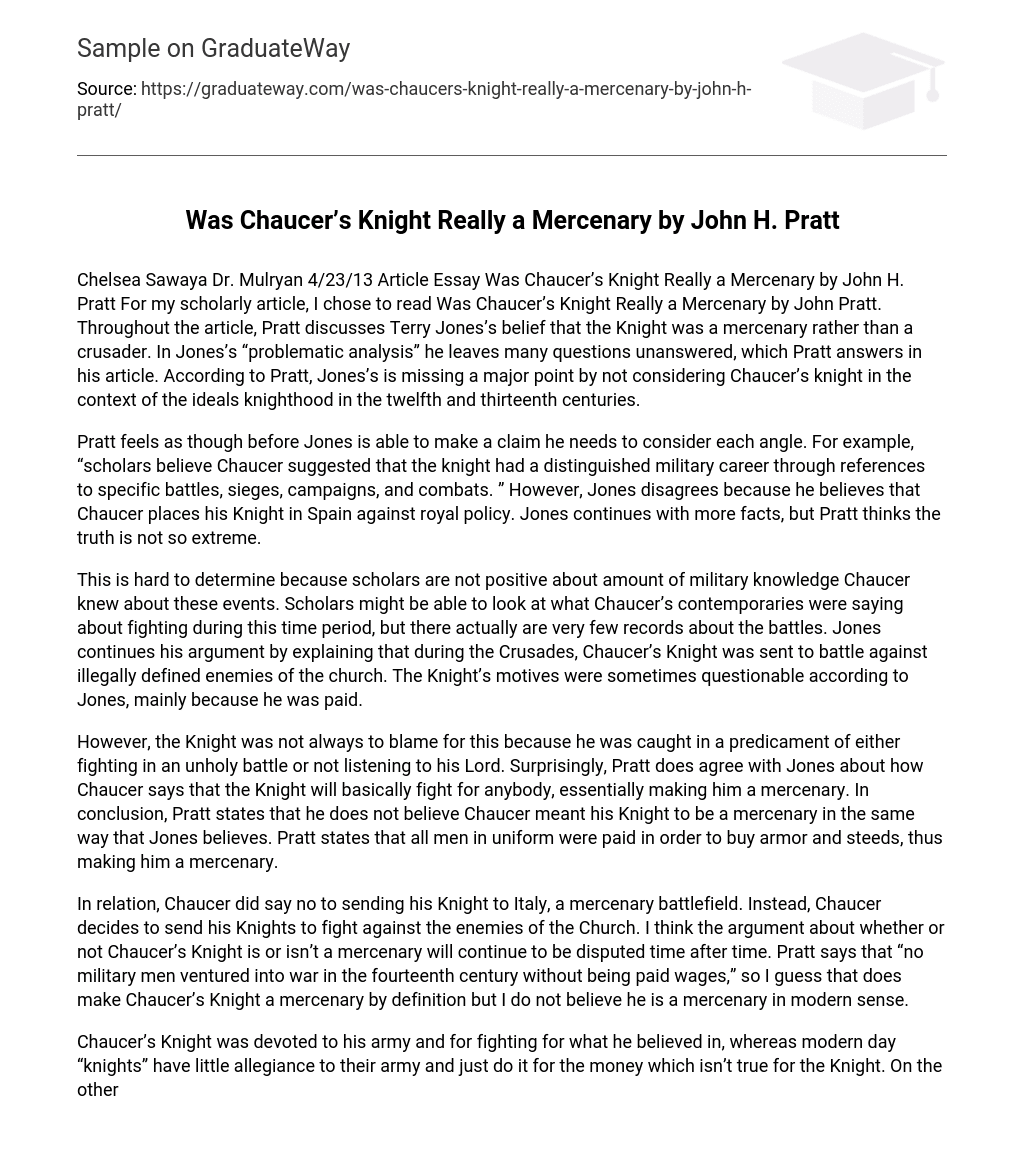For my scholarly article, I chose to read Was Chaucer’s Knight Really a Mercenary by John Pratt. Throughout the article, Pratt discusses Terry Jones’s belief that the Knight was a mercenary rather than a crusader. In Jones’s “problematic analysis” he leaves many questions unanswered, which Pratt answers in his article. According to Pratt, Jones’s is missing a major point by not considering Chaucer’s knight in the context of the ideals knighthood in the twelfth and thirteenth centuries.
Pratt feels as though before Jones is able to make a claim he needs to consider each angle. For example, “scholars believe Chaucer suggested that the knight had a distinguished military career through references to specific battles, sieges, campaigns, and combats. ” However, Jones disagrees because he believes that Chaucer places his Knight in Spain against royal policy. Jones continues with more facts, but Pratt thinks the truth is not so extreme.
This is hard to determine because scholars are not positive about amount of military knowledge Chaucer knew about these events. Scholars might be able to look at what Chaucer’s contemporaries were saying about fighting during this time period, but there actually are very few records about the battles. Jones continues his argument by explaining that during the Crusades, Chaucer’s Knight was sent to battle against illegally defined enemies of the church. The Knight’s motives were sometimes questionable according to Jones, mainly because he was paid.
However, the Knight was not always to blame for this because he was caught in a predicament of either fighting in an unholy battle or not listening to his Lord. Surprisingly, Pratt does agree with Jones about how Chaucer says that the Knight will basically fight for anybody, essentially making him a mercenary. In conclusion, Pratt states that he does not believe Chaucer meant his Knight to be a mercenary in the same way that Jones believes. Pratt states that all men in uniform were paid in order to buy armor and steeds, thus making him a mercenary.
In relation, Chaucer did say no to sending his Knight to Italy, a mercenary battlefield. Instead, Chaucer decides to send his Knights to fight against the enemies of the Church. I think the argument about whether or not Chaucer’s Knight is or isn’t a mercenary will continue to be disputed time after time. Pratt says that “no military men ventured into war in the fourteenth century without being paid wages,” so I guess that does make Chaucer’s Knight a mercenary by definition but I do not believe he is a mercenary in modern sense.
Chaucer’s Knight was devoted to his army and for fighting for what he believed in, whereas modern day “knights” have little allegiance to their army and just do it for the money which isn’t true for the Knight. On the other hand, Jones said that Chaucer’s Knight was indeed a mercenary. I agree with Jones, in the fact that the Knight did probably have some mercenary traits. I do not believe that that is what he was completely.





